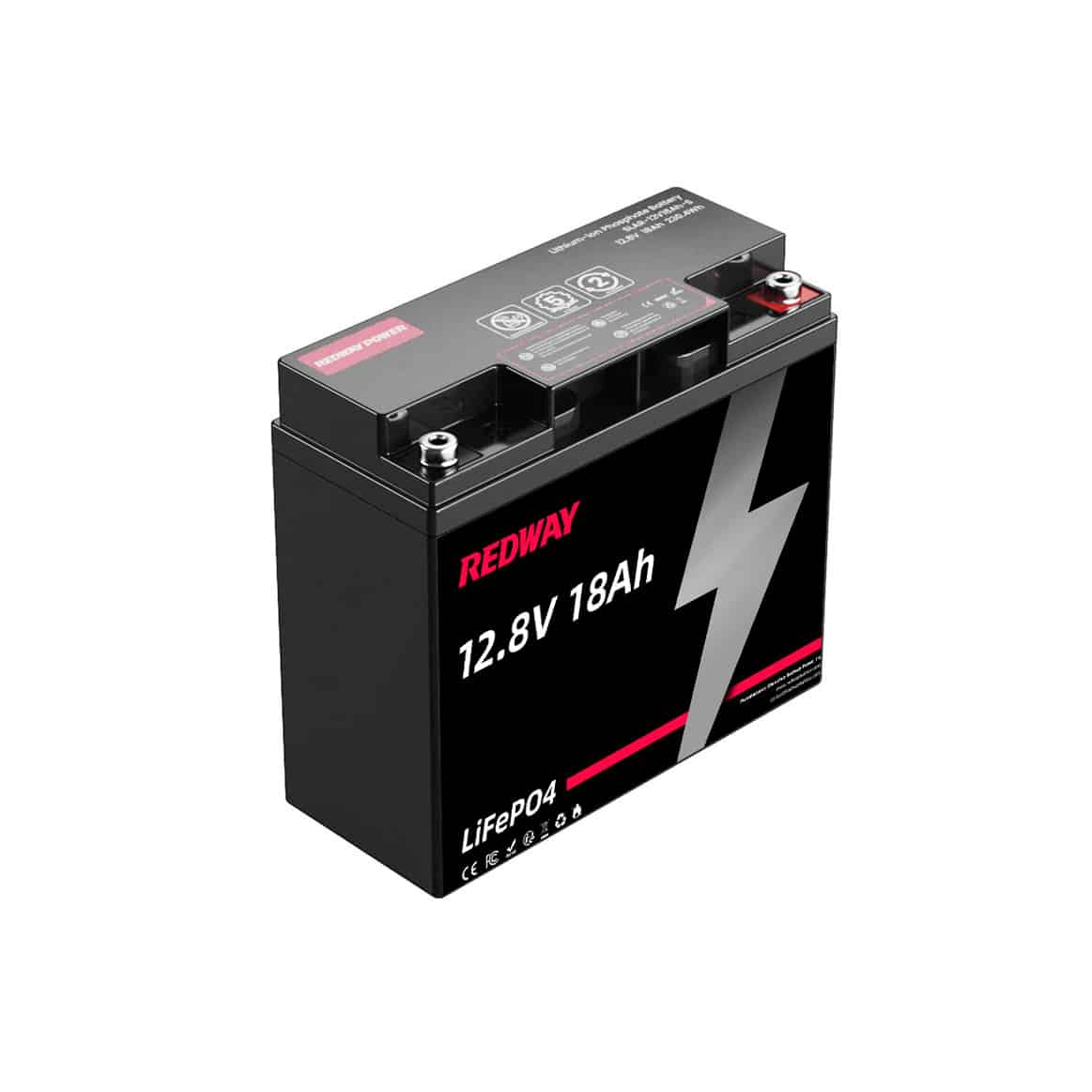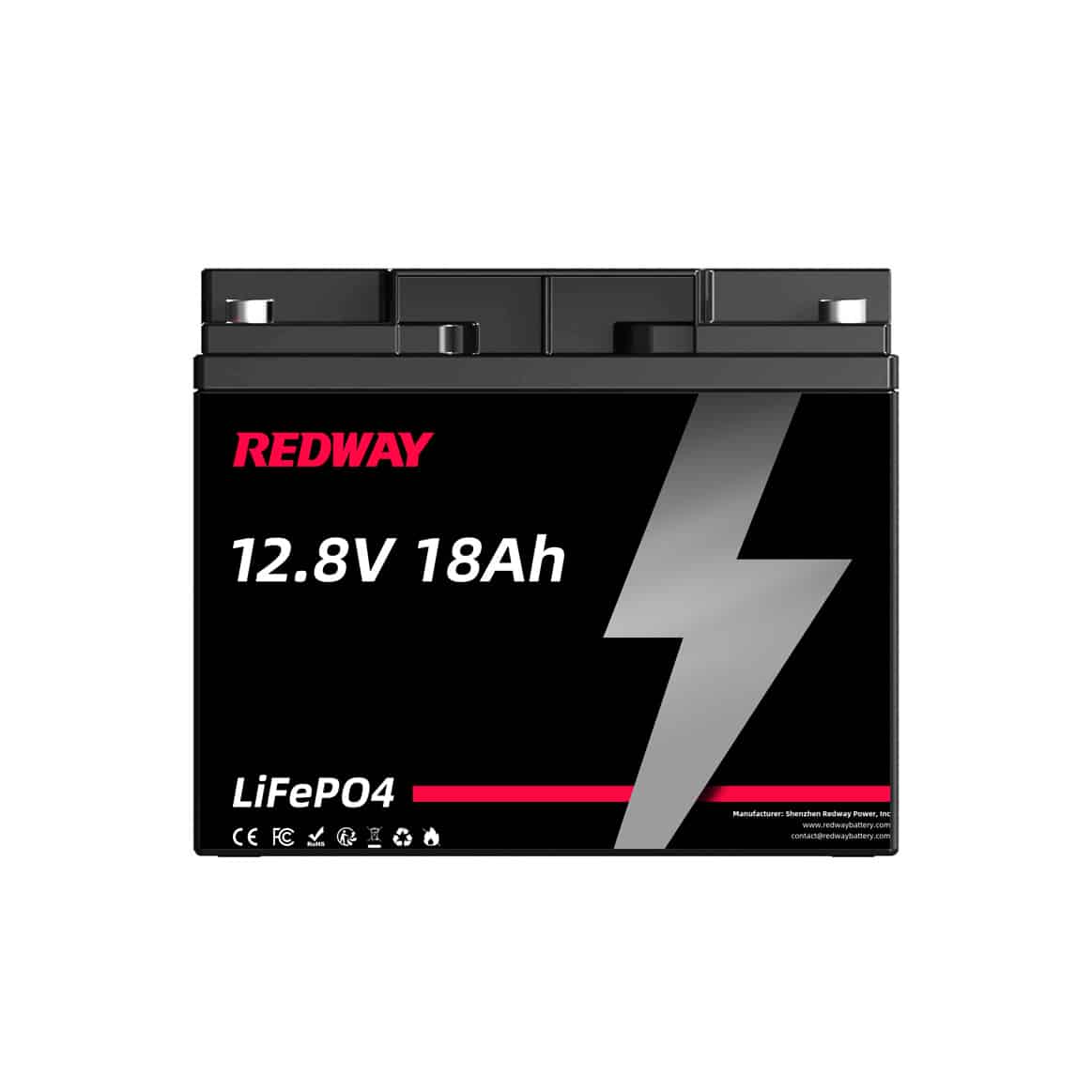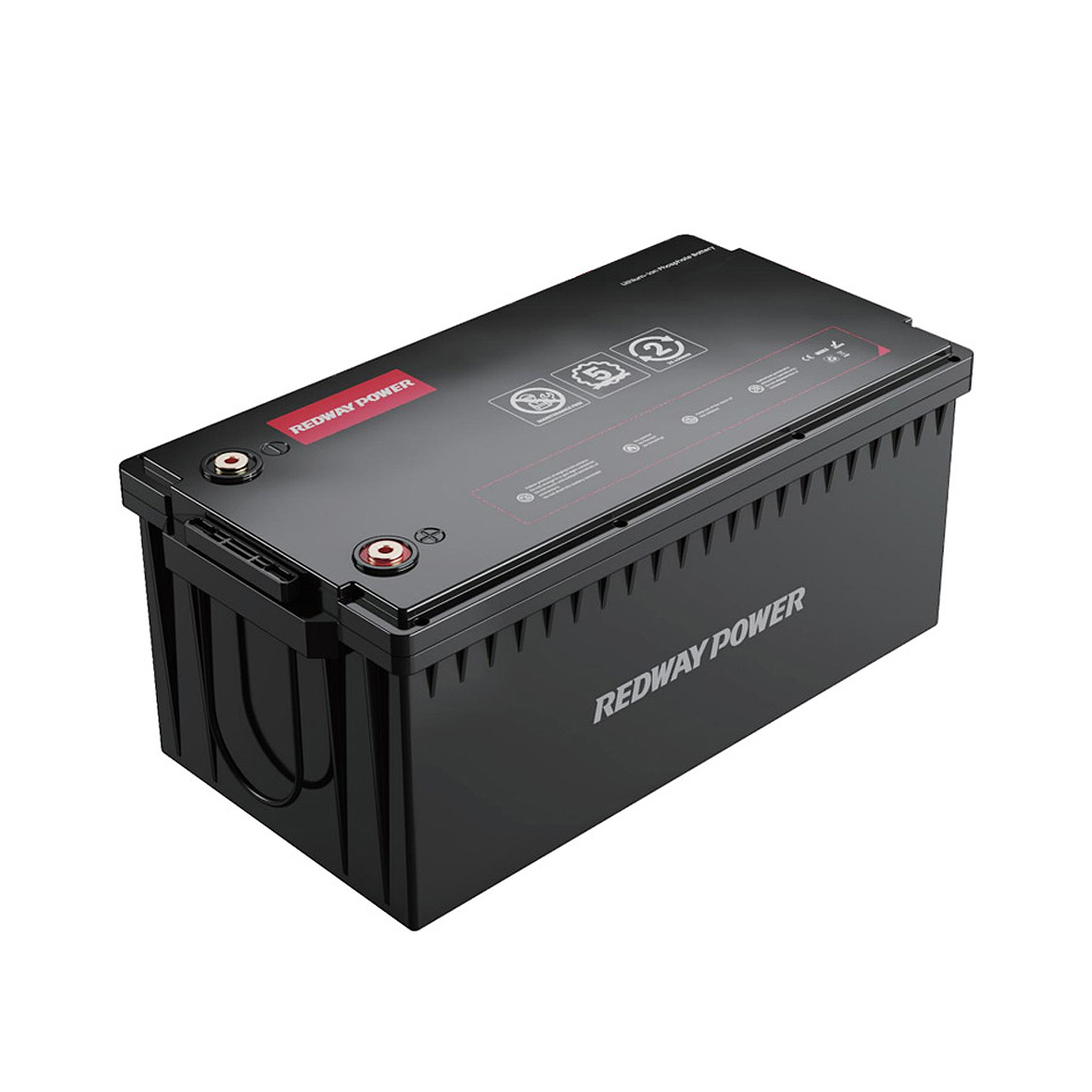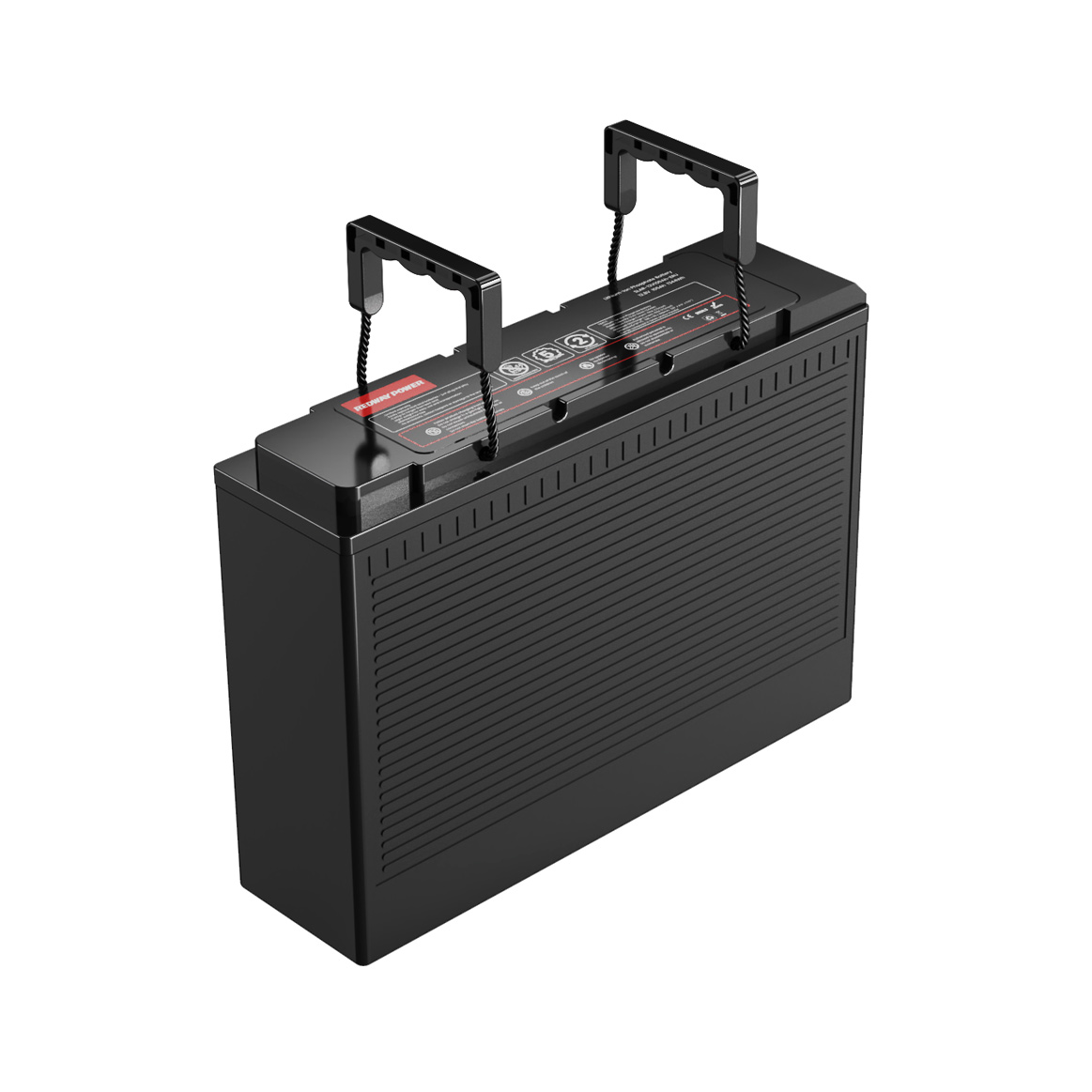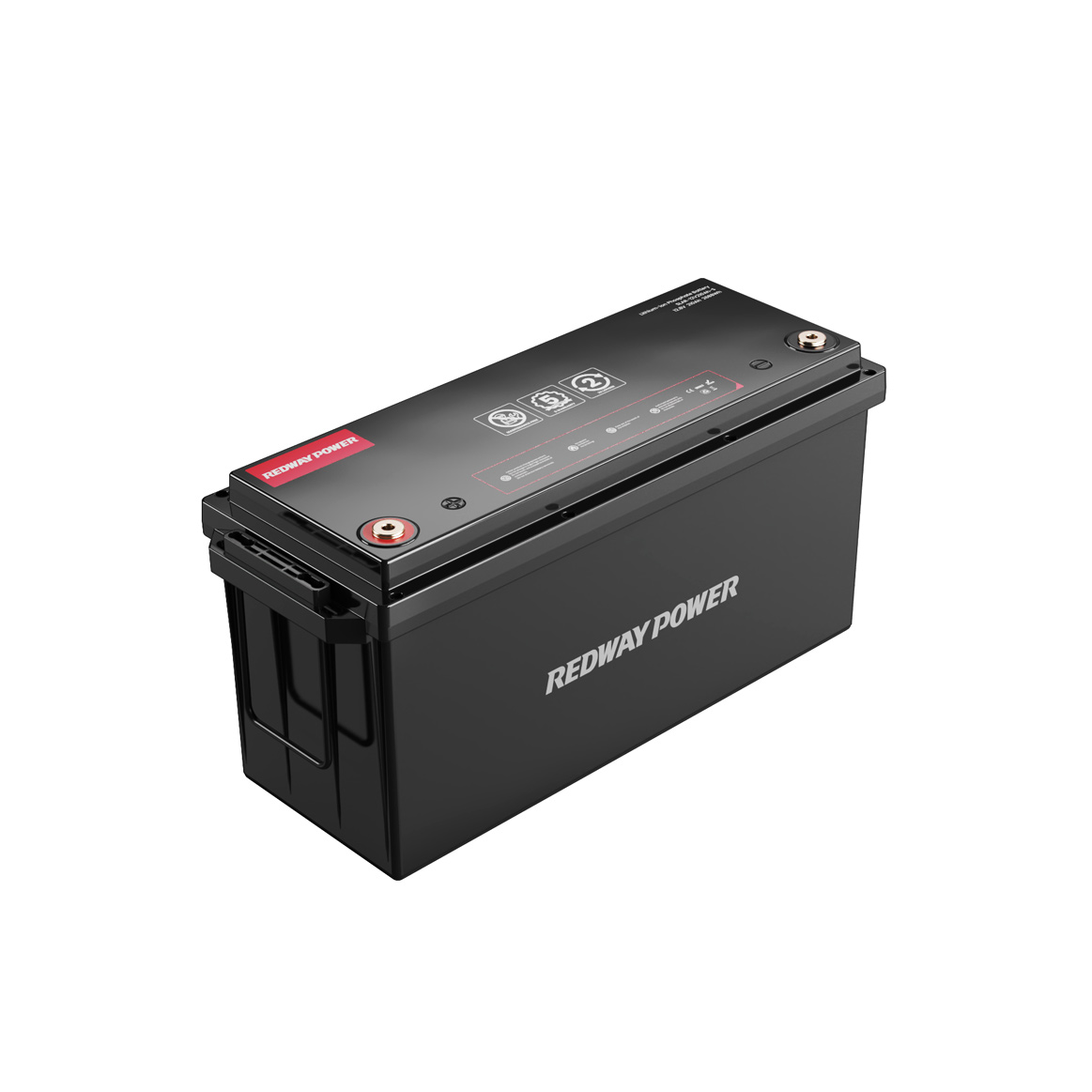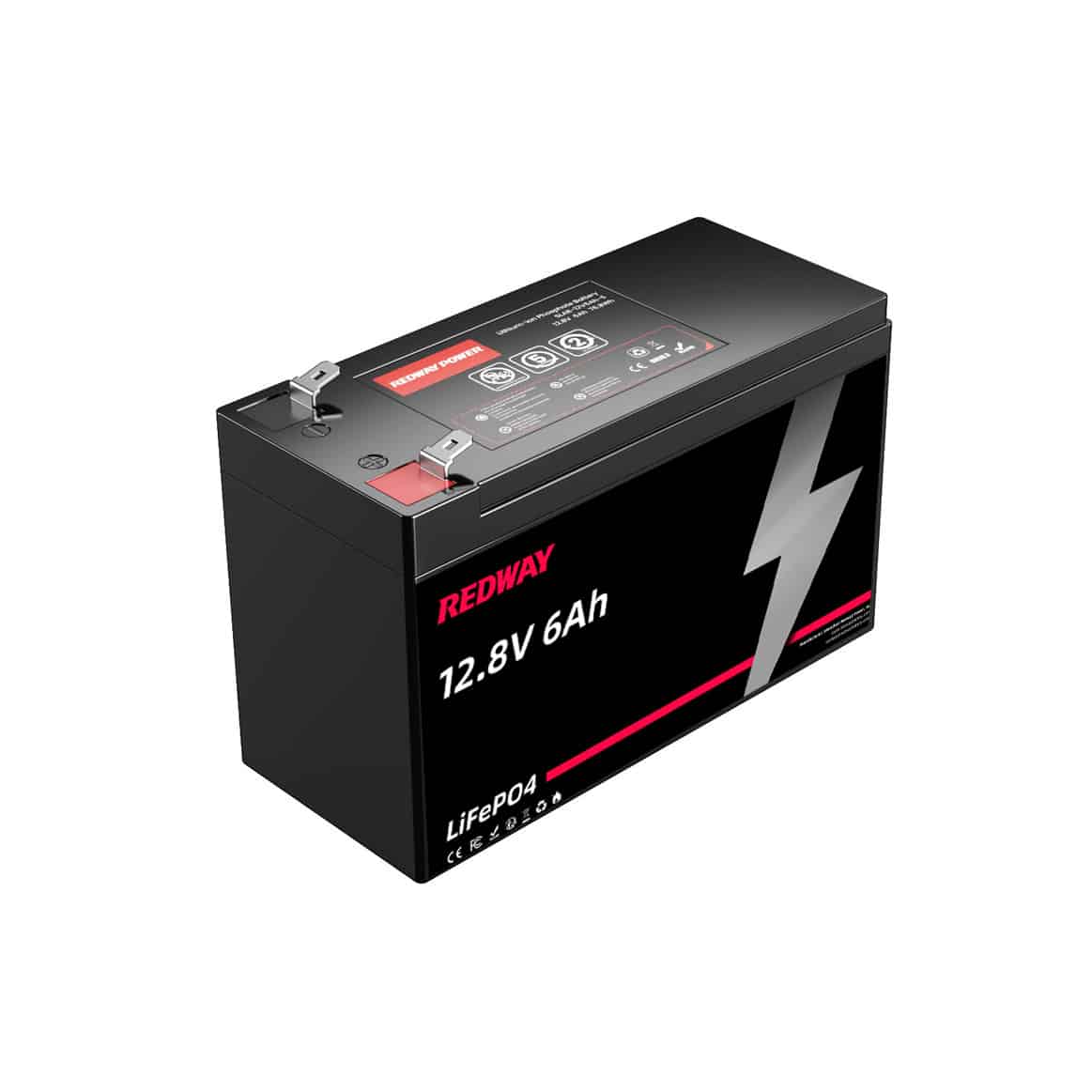Description
The Redway 12V 18Ah LiFePO4 Battery combines high performance, durability, and advanced safety features, making it an excellent energy storage solution for diverse applications. Thanks to its compact and lightweight design, this battery offers a high energy density, ideal for space-limited environments like electric bikes, scooters, wheelchairs, and solar power systems.
Built for longevity, the Redway 12V18Ah battery delivers over 4000 cycles at 80% Depth of Discharge (DOD), ensuring reliable, long-lasting power. Its smart Battery Management System (BMS) provides robust protection against overcharge, over-discharge, and short circuits, contributing to safer and more dependable operation compared to other lithium-ion chemistries.
With continuous charge and discharge currents up to 15A, the battery efficiently supports moderate to high power demands. Its IP65-rated ABS shell safeguards against dust and water, extending the battery’s lifespan even in challenging environments.
This battery is highly versatile and can be used alone or combined in series for higher voltage needs, making it suitable for backup power, solar energy storage, and electric vehicles. Certified to UL 1642, IEC 62619, CE, UN38.3, and MSDS standards, Redway’s 12V 18Ah LiFePO4 battery offers a reliable, safe, and cost-effective power solution backed by a 3-year warranty and a design life of 10 years.
Know More
Why Choose a 12V 18Ah Factory Lithium LiFePO4 Battery for OEM/ODM and Wholesale Projects?
A 12V 18Ah factory lithium LiFePO4 battery delivers lightweight, long-life, and high-performance energy for solar, backup, mobility, and portable power. Redway Battery leads with OEM/ODM customization, smart BMS, and global certifications, making it the trusted choice for B2B, wholesale, and demanding energy storage applications.
What are the essential features of a 12V 18Ah LiFePO4 lithium battery from a factory?
A 12V 18Ah LiFePO4 battery features a nominal voltage of 12.8V, energy capacity of 230–230.4Wh, and weighs just 1.8–2.6kg. With over 3500–4000 cycles at 80% DOD, it offers maintenance-free operation, fast charging, and a compact ABS or custom case. Redway Battery supports OEM/ODM customization for voltage, terminals, BMS, and communication protocols.
Chart: 12V 18Ah LiFePO4 Battery Key Specifications
| Feature |
Value |
| Nominal Voltage |
12.8V |
| Capacity |
18Ah |
| Energy |
230–230.4Wh |
| Cycle Life |
3500–4000+ |
| Weight |
1.8–2.6kg |
| Dimensions |
151–177 × 98–167 × 95–170mm |
| BMS |
Smart (15–18A, Bluetooth/CAN/RS485 optional) |
| Waterproof |
IP65 |
| Parallel/Series |
Up to 4S/4P |
| Certifications |
CE, UL, UN38.3, IEC |
| Warranty |
3–10 years |
How does a 12V 18Ah LiFePO4 battery compare to lead-acid and other chemistries?
LiFePO4 batteries offer 5–10 times the cycle life, are 60–70% lighter, and provide 100% usable capacity versus 50% for lead-acid. They deliver stable voltage, fast charging, and require no maintenance. Compared to NMC or LCO, LiFePO4 is safer, more thermally stable, and ideal for daily cycling and harsh environments.
Why is a smart BMS essential for 12V 18Ah lithium batteries in OEM/ODM projects?
A smart BMS manages cell balancing, overcharge/discharge protection, and temperature control. Redway Battery’s BMS supports Bluetooth, CAN, RS485, and more, enabling real-time monitoring, remote diagnostics, and seamless integration with solar, marine, and portable power systems—ensuring safety, longevity, and peak performance.
What are the most common applications for a 12V 18Ah LiFePO4 battery?
These batteries are used in solar storage, emergency lights, trolling motors, fish finders, UPS, medical carts, e-bikes, portable power stations, and backup power for RVs and boats. Their compact size and deep cycling make them perfect for mobile, backup, and renewable energy applications where weight and reliability are crucial.
How customizable are 12V 18Ah lithium batteries for OEM/ODM and wholesale buyers?
Redway Battery and leading factories offer full OEM/ODM customization—capacity, voltage, BMS features, shell material, communication protocols, and branding. MOQ can be as low as 50 units, with delivery in 7–20 days. Custom labeling, user manuals, and packaging are available for private labeling and seamless integration.
What certifications and quality standards do these batteries meet?
Redway Battery’s 12V 18Ah lithium batteries are certified to CE, UL, UN38.3, IEC, and ISO9001 standards. IP65 waterproofing ensures durability in harsh environments. Rigorous QC and traceability guarantee reliability for global B2B and OEM clients.
Chart: Certifications and Standards
| Certification |
Coverage |
| UL |
Cell/Battery Safety |
| CE |
European Safety/EMC |
| UN38.3 |
Lithium Transport |
| IEC |
Battery Safety |
| ISO9001 |
Factory Quality |
How do OEM/ODM factories like Redway Battery support B2B and wholesale buyers?
Redway Battery provides engineering support, fast prototyping, and flexible pricing. Their Dongguan factory offers rapid turnaround, global shipping (FOB, EXW, CIF), and payment options (T/T, L/C, PayPal). Technical support and after-sales service ensure smooth integration and satisfaction.
What is the price range and delivery time for wholesale 12V 18Ah LiFePO4 batteries?
Bulk pricing ranges from $45 to $120 per unit, depending on quantity and customization. Redway Battery’s MOQ is 50 units, with typical delivery in 7–20 days. Discounts are available for large orders, and shipping options include sea, air, and land for global reach.
Can 12V 18Ah LiFePO4 batteries be integrated with smart monitoring and IoT systems?
Yes, Redway Battery’s OEM/ODM solutions support Bluetooth, WiFi, CAN, and RS485 for remote monitoring and IoT integration. Optional LCD/LED displays and app connectivity enable real-time diagnostics, predictive maintenance, and remote management—ideal for advanced solar, marine, and portable deployments.
Redway Battery Expert Views
“Redway Battery’s 12V 18Ah lithium battery is engineered for reliability, safety, and adaptability. Our OEM/ODM services empower clients to innovate in solar, marine, and portable energy. With advanced BMS, global certifications, and rapid delivery, we ensure every project achieves maximum performance and satisfaction.”
Conclusion
A 12V 18Ah factory lithium LiFePO4 battery from Redway Battery delivers unmatched safety, longevity, and flexibility for B2B and wholesale applications. With advanced BMS, global certifications, and custom engineering, these batteries drive innovation in solar, marine, and backup power—delivering reliable, scalable, and future-ready energy.
FAQs
What is the cycle life of a 12V 18Ah LiFePO4 battery?
Most deliver 3500–4000+ cycles at 80% DOD, lasting 8–12 years in typical use.
Can I customize the battery for my application?
Yes, Redway Battery offers OEM/ODM customization for voltage, capacity, BMS, and communication protocols.
What certifications do these batteries have?
CE, UL, UN38.3, IEC, and ISO9001 ensure global safety and quality compliance.
What is the MOQ and delivery time for wholesale orders?
MOQ is 50 units, with delivery in 7–20 days and global shipping options.
Are these batteries compatible with solar, marine, and portable systems?
Absolutely, they integrate seamlessly with solar inverters, marine electronics, and portable power devices.


